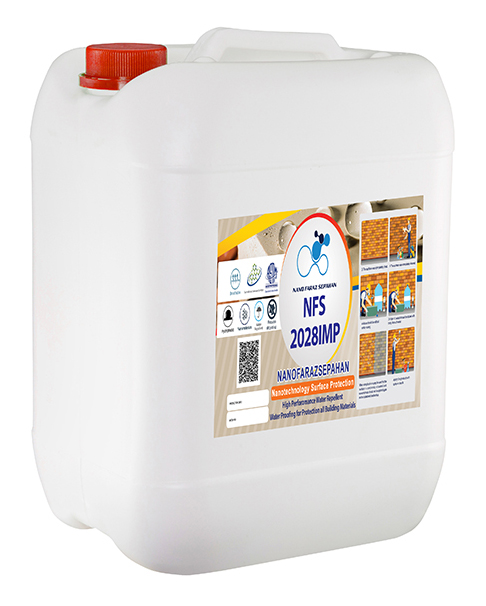When mineral building materials come into contact with water, they absorb water depending on their porosity. The result is various forms of damage, including:
• Penetration of moisture through walls
• Cracks caused by swelling and shrinkage
• Damage caused by frost and deicing salt
• Destruction of concrete caused by corrosion of the reinforcing steel
• Efflorescence and salt damage caused by hydration and crystallization
• Lime leaching
• Rust stains
• Dirt pick up and attack of fungi, moss, lichens and algae
• Chemical corrosion, e. g. binder transformation caused by acidic gases (SO2, NO2)
• Impaired thermal insulation
Many of these forms of damage can be prevented, or at least reduced or kept at bay for longer, by means of impregnating agents. Creation of a water repellent zone considerably reduces the uptake of water and aggressive substances; the masonry remains dryer, and is consequently less prone to the damages mentioned above.
The purpose of water repellent treatment is to protect exposed facades from moisture and consequent damages by applying a colorless, non-film forming agent which prevents capillary uptake of water and dissolution of aggressive substances therein. Because the impregnating agent does not block the capillaries, the substrate retains its vapor permeability.
• Strong reduction in water uptake
• Excellent water repellency and consequently:
Salt barrier (e.g. road salt and sea water) – chlorides dissolved in water are blocked No corrosion – the reinforcing steel does not rust since no moisture reaches it
No frost damage – greater resistance to freeze/thaw cycles
• Preservation with NFS-2028 IMP saves costs, energy and resources:
Cost- and resource-intensive renovation is avoided.
Buildings that have been treated by hydrophobic impregnation have a significantly longer lifespan and thus a low environmental impact over the long term
• Does not influence water-vapor permeability
• The physical properties of the construction material, especially its water vapour permeability are barely affected by NFS-2028 IMP.
• High early water resistance
• Creates a strong beading effect
• Solvent free
• Low soiling tendency
• Excellent depth of penetration
NFS-2028 IMP does not build up a film and shows a very good and deep penetration into the construction material (Due to its very fine particles, the product is able to penetrate the masonry materials deeply).
• Prevents salt blooming and efflorescence
• Excellent chemical resistance
• Resistance to UV light
• Surfaces does not render shiny, tacky, or yellowish appearance • Environmental compatibility
NFS-2028 IMP provides a comprehensive and long-lasting protection of construction materials against water intrusion, efflorescence and destruction by water-soluble pollutants as well as against frost damage and the attack of micro-organism.
NFS-2028 IMP is used for impregnating building materials like normal and reinforced concrete, brick, natural stones, rooftiles, plaster and thatched surface and wood. It can also be used as a primer for coating systems.
